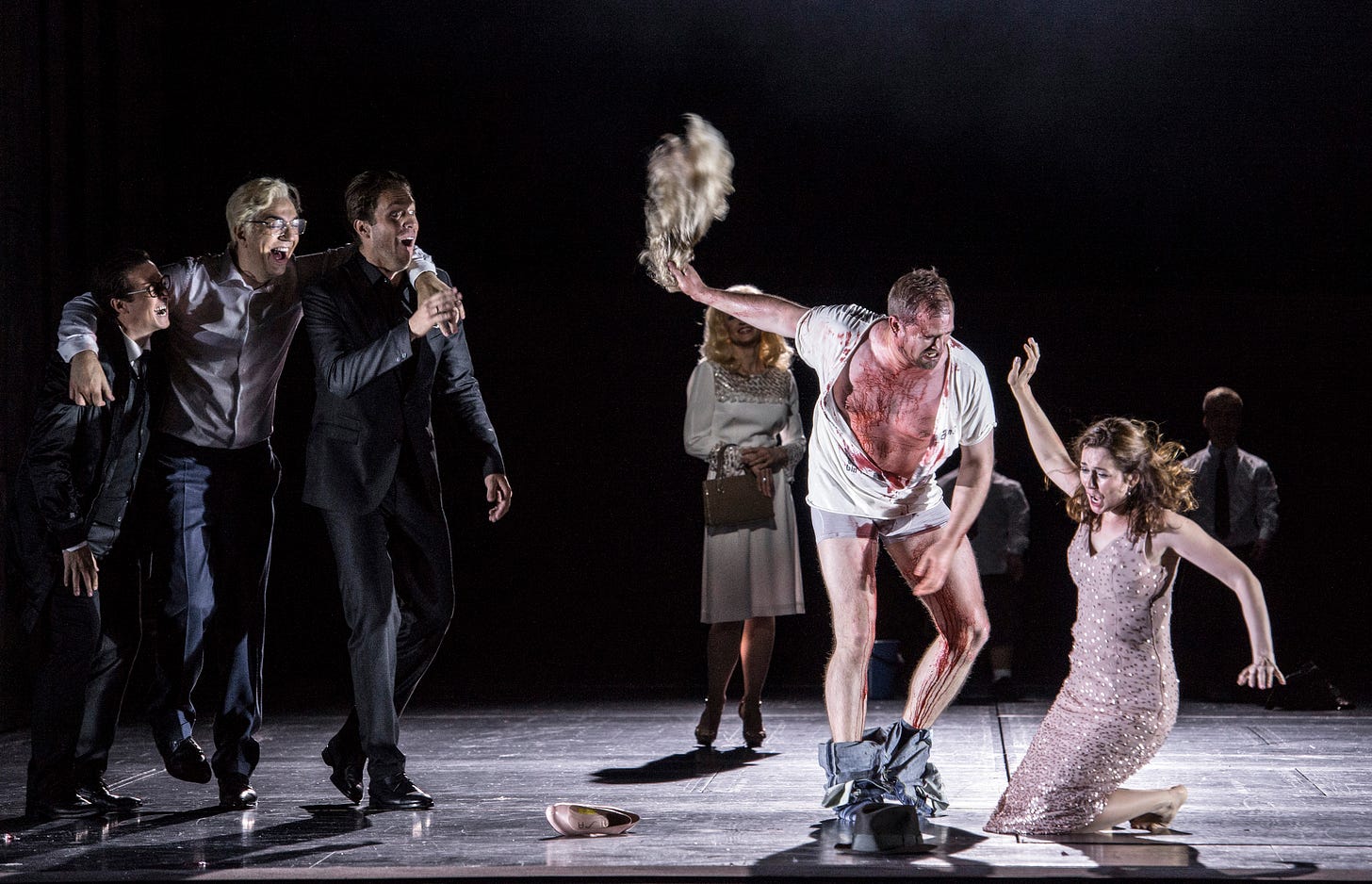Welcome to Part 4 of Six Degrees of Plácido Domingo, where we’ll be exploring opera’s current #MeToo reckoning through four centuries of misogyny and misconduct in the genre’s history — onstage and off. While you don’t have to have read anything else before diving in here, you can catch up with Part 1, Part 2, and Part 3 for full effect.
In his review of Michele Girardi’s biography of the Puccini, His International Art, Jerry Fodor cuts to the chase with his read on the iconic composer:
“One is often moved to be sure; but there is also a sense of being complicit in something not entirely nice. The puzzle about Puccini is why this should be so.”
For Fodor, that puzzle is solved with some dramaturgical digging, which really is less of a dig as it is a sift. Puccini’s operas, which came to dominate Italian (and international) opera in the 20th Century, reach iconic musical heights, but at the expense of what, in some stagings, is near-literal torture porn.

Calixto Bieito’s Tosca at Den No…
Keep reading with a 7-day free trial
Subscribe to Critical Drift to keep reading this post and get 7 days of free access to the full post archives.



